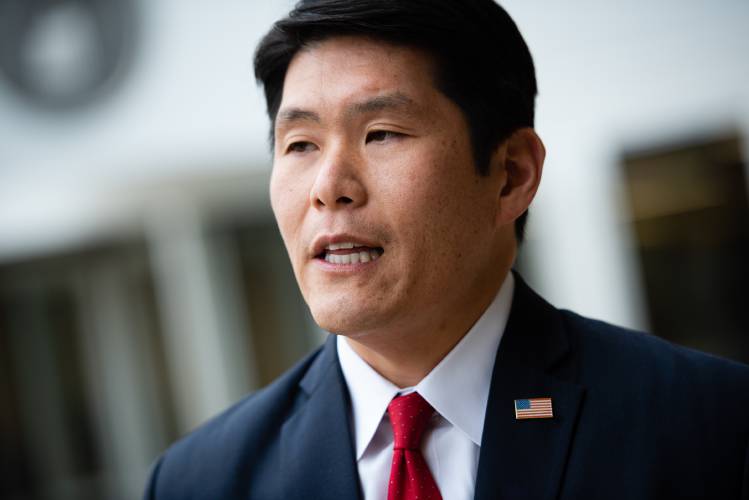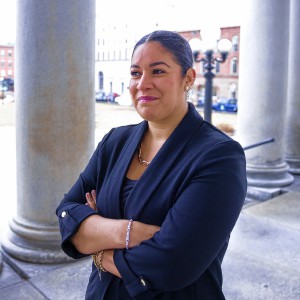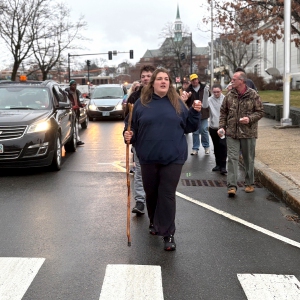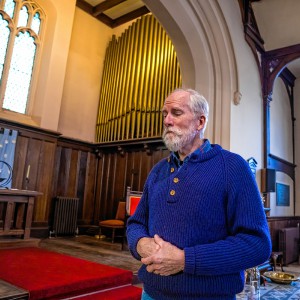Opinion: A well-meaning elderly man with a poor memory?

United States Attorney for the District of Maryland, Robert K. Hur, outside the U.S. District Court in Greenbelt, Maryland, in 2019. Photo by Sarah L. Voisin / The Washington Post
| Published: 02-17-2024 6:30 AM |
Millie LaFontaine of Concord is a retired neurologist.
Concerns over President Biden’s age have been simmering for years. Now the report of a special counsel appointed solely to investigate the president’s handling of classified documents from his time as a vice president has put that conversation on the front burner. Special Counsel Robert Hur condescendingly called Biden “a well-meaning elderly man with a poor memory.” But we need to be careful not to conflate advancing age with decreasing leadership ability. And we need to understand that memory is an aspect of cognition only loosely related to age.
The president is 81. There is no getting around that fact. But does age imply infirmity and impaired cognition? It’s true that as we age we have less spring in our step and need to be more deliberative in our thinking. There is also no question that the benign forgetfulness we all experience starting in our thirties (the “where did I leave my keys?” kind) becomes more common as we age. But the kind of memory impairment that comes with normal aging does not disqualify someone from a job for which he is otherwise highly qualified.
As a neurologist who was in clinical practice for more than 35 years, I know very well how critical it is to distinguish the benign forgetfulness we all experience over the course of our lives, and the “forgetfulness” which is a sign of more significant cognitive decline, and is seen in various forms of dementia. It is important to recognize that “forgetfulness” in the bad sense has several important features: first, it doesn’t occur in isolation, but is accompanied by other signs of cognitive impairment, including, for example, worsening judgment and problem-solving skills, decreased attention, and altered behavior.
Second, “forgetfulness” affects our most recent memories much more than those well-rehearsed memories of years gone by. Third, while in benign forgetfulness memories can often be retrieved with appropriate cues, in “forgetfulness” the memories are erased altogether. And finally, “forgetfulness” worsens significantly over time, in contrast to the occasional memory lapses we all must acknowledge, and can occur more often when we are distracted or fatigued, and do occur as we age.
Special Counsel Hur was charged with assessing whether Biden should be prosecuted for his handling of classified documents. He concluded that there were no grounds for prosecution. Yet, gratuitously, he offered his personal opinion about Biden’s age and memory. Before taking Mr. Hur’s assessment as the final word on the subject, we should ask ourselves what the president’s actions and own words say about his ability to govern.
What I have seen, and continue to see, is a president engaged and interacting meaningfully on a daily basis with scores of people and organizations, and analyzing and assessing an enormous number of complex issues, always keeping the good of the American people front and center. He has done it throughout his presidency and continues to do it. No one can predict the future, and I can only speak to what I observe. But a few words here or there, a lapse here or there, a minor stumble here or there do not make a case against anybody, including the president.
What I continue to see is a president with a nuanced understanding of our needs as a nation and our role on the global stage. I see a president who effectively and tirelessly champions legislation to benefit us all. I see a man with a clear idea of who he is and what he wants to accomplish. If anyone would be remiss for forgetting important things about the way the president performs his job, it would be us.
Article continues after...
Yesterday's Most Read Articles
 What to know about the plan to allow students to attend any public school in the state
What to know about the plan to allow students to attend any public school in the state
 ‘If you’re proud of it, we want to see it’: Cars & Coffee on Capitol returning to Concord
‘If you’re proud of it, we want to see it’: Cars & Coffee on Capitol returning to Concord
 ‘A wild accusation’: House votes to nix Child Advocate after Rep. suggests legislative interference
‘A wild accusation’: House votes to nix Child Advocate after Rep. suggests legislative interference
 ‘He went home’: Remembering Rodney Moody, ‘the mayor’ of Concord’s homeless community
‘He went home’: Remembering Rodney Moody, ‘the mayor’ of Concord’s homeless community
 A Franklin congregation loves its 19th-century home. Insurance woes could spell its decline.
A Franklin congregation loves its 19th-century home. Insurance woes could spell its decline.
 High school softball previews: Concord looks to bounce back from heartbreaking exit
High school softball previews: Concord looks to bounce back from heartbreaking exit







 Opinion: An attack on the legal profession is an attack on us all
Opinion: An attack on the legal profession is an attack on us all Opinion: HealthTrust's decision to drop anti-obesity medications is a step back in the fight against a chronic disease
Opinion: HealthTrust's decision to drop anti-obesity medications is a step back in the fight against a chronic disease Opinion: Courage and care count
Opinion: Courage and care count
